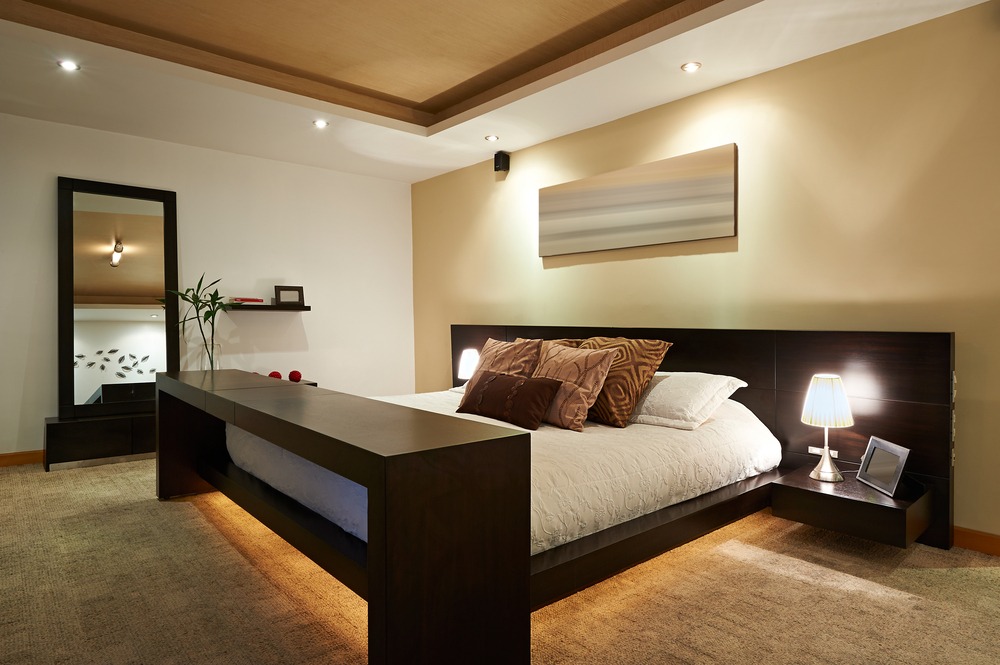 It’s believed that we spend about a third of our lives sleeping, but getting a good night’s sleep isn’t always easy. Between the stress of everyday life and environmental factors of the room you sleep in, restful sleep can be remarkably difficult to get. Finding the right mattress plays an extremely important role in improving your quality of sleep, but there are plenty of other things you can do to make your bedroom more conducive to sleep.
It’s believed that we spend about a third of our lives sleeping, but getting a good night’s sleep isn’t always easy. Between the stress of everyday life and environmental factors of the room you sleep in, restful sleep can be remarkably difficult to get. Finding the right mattress plays an extremely important role in improving your quality of sleep, but there are plenty of other things you can do to make your bedroom more conducive to sleep.
Block Out the Light
Nobody likes being woken up earlier than they need to be because the bright morning sun is shining in through a window. Blackout shades and curtains are an excellent window treatment choice for vinyl replacement windows placed in bedrooms since they’re more effective at blocking out sunlight than any other type of window treatment. They’re also a particularly important thing to have if you don’t work a job with 9-5 hours and need to sleep during the daytime.
In addition to controlling the amount of natural daylight your bedroom gets, it’s also important to evaluate the electrical lighting in your bedroom. Place individual lamps on each side of the bed so you’ll be able to see without disturbing your partner. You may also want to look into getting dimmable lights for your overhead lighting so that your room can have a nice, soft ambiance.
Get Rid of Clutter
Even if you aren’t awake to see it, clutter in your bedroom can make it more difficult to sleep well. Being around clutter can increase stress and anxiety, which aren’t going to help you get the restful sleep you need.
Remove Electronic Distractions
Although it might sound like a nice idea to lay in bed and watch an episode of your favorite TV show or catch up on your email before going to sleep, it’s best to keep electronics out of the bedroom all together. Electronic devices like TVs, smartphones, and electronic book readers give off a blue-tinged light that affects your body’s melatonin levels and can make it more difficult to fall asleep.
A Fresh Coat of Paint
Believe it or not, even the color of your bedroom can make a difference in the quality of sleep you get. Ideally, walls in bedrooms should be painted a soothing, relaxing color like blue or green. Red and yellow are often considered energizing colors, so those aren’t colors you’ll want to use in a space that’s intended for resting and relaxing.
Improve Air Quality
Better breathing leads to better sleep. Even if you don’t have problems with allergies or asthma, improved air quality still help you get a good night’s sleep. Make sure you dust your bedroom regularly and vacuum frequently if you have carpeting. An air purifier with a HEPA filter will help keep dust and other allergens under control. Keeping a few houseplants in the bedroom is another excellent way to improve your air quality.
